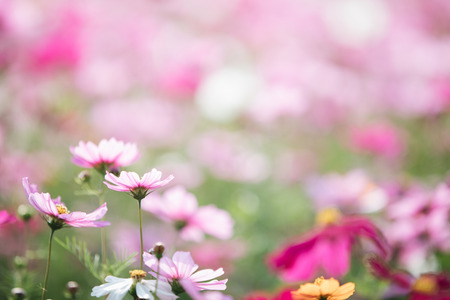Floral Harmony: An Introduction to Feng Shui With a British Twist
Amidst the rolling hills, charming cottages, and vibrant gardens of the UK, a gentle breeze whispers secrets of ancient wisdom—Feng Shui. Rooted in Chinese tradition, Feng Shui is more than just arranging furniture; it’s an art of harmonising energy, inviting prosperity, joy, and positive vibes into our daily lives. Imagine this timeless philosophy weaving its way through Britain’s lush horticultural heritage: the delicate bluebells carpeting woodlands in spring, or fragrant roses climbing up stone walls in an English garden. Here in Britain, flowers have long been cherished not only for their beauty but also for their symbolic meanings—think of the lucky shamrock, regal thistle, or hope-filled daffodil. As these blooms intertwine with the principles of Feng Shui, a unique blend emerges: one where British flora becomes conduits of good fortune and wellbeing. In this exploration, we delve into how the spirit of Feng Shui finds its home amidst tea roses and lavender hedges, offering modern Britons fresh ways to cultivate abundance and harmony through the simple magic of flowers.
Home-Grown Abundance: Native UK Flowers and Their Prosperous Powers
Amidst rolling meadows, ancient woodlands, and cottage gardens, Britain’s native blooms are more than a feast for the eyes—they’re vessels of age-old prosperity and positivity. In the delicate bluebells carpeting spring forests, the stately foxgloves nodding in the breeze, and the radiant daffodils heralding new beginnings, we find a tapestry woven with hope, luck, and good fortune. Each flower, steeped in folklore and cherished by generations, offers its own unique energy to homes seeking abundance through the gentle art of Feng Shui. Let’s step into this vibrant garden of meaning and discover how these beloved British flowers can help cultivate wealth and well-being in your space.
| Flower | Season | Symbolic Meaning | Feng Shui Benefit |
|---|---|---|---|
| Bluebell | Spring | Gratitude & Humility | Invites harmony and blessings; attracts supportive relationships |
| Foxglove | Summer | Protection & Intuition | Shields from negative energy; encourages inspired decision-making |
| Daffodil | Early Spring | Renewal & Prosperity | Brings fresh starts; stimulates growth and financial luck |
Imagine walking through an English woodland as morning mist hugs the earth—bluebells unfold beneath ancient oaks, their indigo haze said to bestow gratitude upon all who pause to admire them. Foxgloves rise like enchanted towers along hedgerows, protectors of the threshold and keepers of intuitive insight. Come March, daffodils erupt in golden celebration across hillsides and city parks alike; they’re treasured not only for their cheer but also for their promise of renewal after winter’s hush. In British homes guided by Feng Shui wisdom, these flowers are thoughtfully arranged to amplify positive chi: bluebells near entryways for harmonious welcomes, foxgloves in quiet nooks for spiritual safeguarding, and daffodils at desks or windowsills to spark creative abundance. Through their presence—rooted in both nature’s beauty and local lore—these blooms become living talismans of luck and prosperity, nurturing well-being one petal at a time.
![]()
3. Floral Feng Shui in the British Home: Where To Place Your Blooms
The gentle art of flower placement has long been woven into the tapestry of British homes, from the quaint cottages of the Cotswolds to sleek city flats in London. Harnessing Feng Shui principles with a distinctly British flair, the strategic positioning of blooms can usher in waves of prosperity and positive energy. Imagine fresh daffodils gracing a sunlit window sill, their golden trumpets catching the first rays of spring—a simple act that invites uplifting chi and new beginnings. In traditional homes, placing vibrant tulips or cheerful peonies atop the hearth, once the heart of domestic life, symbolises warmth, unity, and abundance radiating through every room. For those with garden entrances or even a modest front step, a well-tended pot of lavender or hydrangea not only welcomes guests but also acts as a guardian—filtering out negativity and inviting fortune within. In modern British interiors, where space may be at a premium, consider petite arrangements on bookshelves or bedside tables; these spots amplify harmony while adding an air of serenity to everyday living. The key is mindfulness: choose healthy, thriving flowers and refresh water often to keep energy circulating. By blending ancient Feng Shui wisdom with the charm of UK florals and domestic spaces, you create a living environment that blossoms with good fortune and joy.
4. Garden Stories: True Tales of Blossoming Prosperity
In the heart of Britain, it’s not uncommon to find families and communities entwining their stories with the blooms that brighten their gardens. These are not just tales of gardening success, but of real transformation—where the energy of native flowers meets the age-old wisdom of Feng Shui to cultivate prosperity, positivity, and heartfelt connection.
The Suttons’ Sunflower Sanctuary
Meet the Sutton family from Somerset. Their once-ordinary back garden became a symbol of hope and abundance after they planted a circle of cheerful sunflowers (Helianthus annuus). Guided by Feng Shui principles, they positioned these golden blooms in the south-east corner—the wealth sector—inviting vibrant energy into their home. Within months, not only did their finances see an unexpected boost, but neighbours started popping round for a chat, drawn by the radiant display. The Suttons now host annual summer fêtes, raising money for local charities—proof that prosperity is best when shared.
A Community’s Connection Through Bluebells
In a quaint Cotswolds village, a neglected patch of woodland was transformed by volunteers planting native bluebells (Hyacinthoides non-scripta). According to local lore and Feng Shui wisdom, bluebells foster harmony and positive relationships. Over tea and biscuits beneath the shimmering blue canopy each spring, villagers found old feuds softened and new friendships blossomed. The bluebells’ quiet magic continues to weave unity among all who wander there.
The Prosperity Blooms: A Quick Glance
Flower |
Feng Shui Benefit |
British Story Highlight |
|---|---|---|
| Sunflower | Attracts wealth & optimism | Sutton family’s financial turnaround & community bonding |
| Bluebell | Cultivates harmony & connection | Cotswolds village’s renewed unity |
| Heather | Promotes luck & protection | Scottish clans’ traditions for blessing new homes |
| Lavender | Brings peace & clarity | Kentish school using lavender borders to calm students during exams |
Lavender Borders and School Success in Kent
When St. Mary’s Primary in Kent struggled with exam nerves among pupils, teachers introduced fragrant lavender (Lavandula angustifolia) borders along walkways. The calming scent, celebrated in both British heritage and Feng Shui for its stress-relieving properties, helped students feel more at ease. That year saw not only improved results but also a happier playground atmosphere—a small change blooming into lasting prosperity for young minds.
5. Seasonal Rituals: Embracing the Cycle of Growth
In the heart of Britain, seasonal rituals with flowers have long been cherished for their power to stir the soul and uplift the home’s energy. Marrying these age-old British customs with Feng Shui principles brings a unique synergy that enhances both prosperity and well-being throughout the year.
May Day: Welcoming Abundance with Spring Blooms
As spring unfurls across the UK, May Day emerges as a festival rich in floral symbolism. Traditionally, Britons gather wildflowers such as bluebells, cowslips, and primroses, weaving them into vibrant posies. Placing these bouquets on doorsteps or windowsills is believed to invite luck and joy into the household—a practice that resonates deeply with Feng Shui’s encouragement of fresh chi. The gentle fragrance of these blooms stirs memories of childhood revelry, while their colours echo nature’s promise of renewal and abundance.
Midsummer Magic: Harnessing Sunlit Energy
When summer solstice arrives, British gardens overflow with roses, foxgloves, and lavender. In Feng Shui, these flowers represent love, protection, and harmony. Creating an arrangement of midsummer blooms for the centrepiece of your dining table or garden altar not only celebrates nature’s peak but also amplifies positive energy in your living space. Imagine sunlight filtering through petals during a warm evening gathering—each flower a whisper of gratitude for life’s fullness.
Harvest Home: Gratitude in Autumn Hues
Come autumn, British tradition honours the bounty of harvest with arrangements featuring sunflowers, marigolds, and berries. Inspired by both local folklore and Feng Shui wisdom, these displays symbolise wealth and contentment. Placing autumnal bouquets on your hearth or mantle expresses thankfulness for what you have received and plants seeds for future prosperity—a gentle nudge from nature to cherish every blessing.
Winter’s Evergreen Blessings
The cold months bring a quieter beauty as holly, ivy, and pine take centre stage. In Britain, evergreens are woven into wreaths or garlands to ward off misfortune and maintain vitality through the darkest days—mirroring Feng Shui’s belief in sustaining life force (chi) indoors. Adorning your entryway with evergreen arrangements not only keeps spirits bright but also acts as a protective charm for all who cross your threshold.
Nurturing Spirit and Space All Year Round
Embracing these seasonal flower rituals bridges old-world wisdom with modern living. Each bouquet or arrangement is more than mere decoration; it becomes a living story—a cycle of hope, gratitude, and intention that nourishes both spirit and home as the seasons turn.
6. Daily Blooms: Simple Tips for Everyday Prosperity
Inviting the gentle magic of flowers into your daily British routine needn’t be a grand affair—it’s about weaving small, meaningful touches that uplift your space and spirit. Here’s how to bring prosperity-inviting blooms into everyday life, embracing both the wisdom of Feng Shui and the charm of quintessential UK living.
The Desk Bloom Ritual
Start your day by placing a single fresh daffodil or cheerful bluebell in a petite vase on your work desk. These blossoms are not only symbols of renewal and positivity in British folklore but also believed in Feng Shui to spark creativity and attract opportunity. Choose locally grown flowers when possible to support British florists and strengthen that sense of homegrown abundance.
The Welcome Posy at Your Doorstep
A simple posy of sweet peas or lavender tied with twine and placed at your doorstep does wonders for ushering in good fortune. According to tradition, such bundles protect the home while radiating a friendly, inviting energy—perfect for that warm British hospitality. Swap out the blooms weekly to keep the energy fresh and lively.
Teatime Tranquillity
Add a sprig of mint or rosemary (both traditional UK herbs) in a small jar on your kitchen table or beside your favourite teacup. Not only do these fragrant greens clear stagnant energy according to Feng Shui, but their scent also soothes the mind during afternoon tea—a ritual in itself for inviting calm prosperity.
Windowsill Wonders
Arrange petite pots of violets or primroses along your windowsills. In Britain, these charming flowers symbolise hope and new beginnings; Feng Shui teaches that healthy plants near windows help circulate positive chi throughout the home. Water them lovingly and watch as both petals and fortunes flourish.
A Nightly Grateful Bloom
End each evening by placing a single stem—perhaps an English rose or foxglove—in a small vase by your bedside. As you drift off, let it be a gentle reminder to reflect on daily blessings, keeping gratitude (and prosperity) flowing freely through your dreams.
With these simple rituals, you’ll find flower power subtly working its magic—rooted in British tradition, elevated by Feng Shui wisdom, and tailored for an everyday life filled with abundance and positive vibes.


